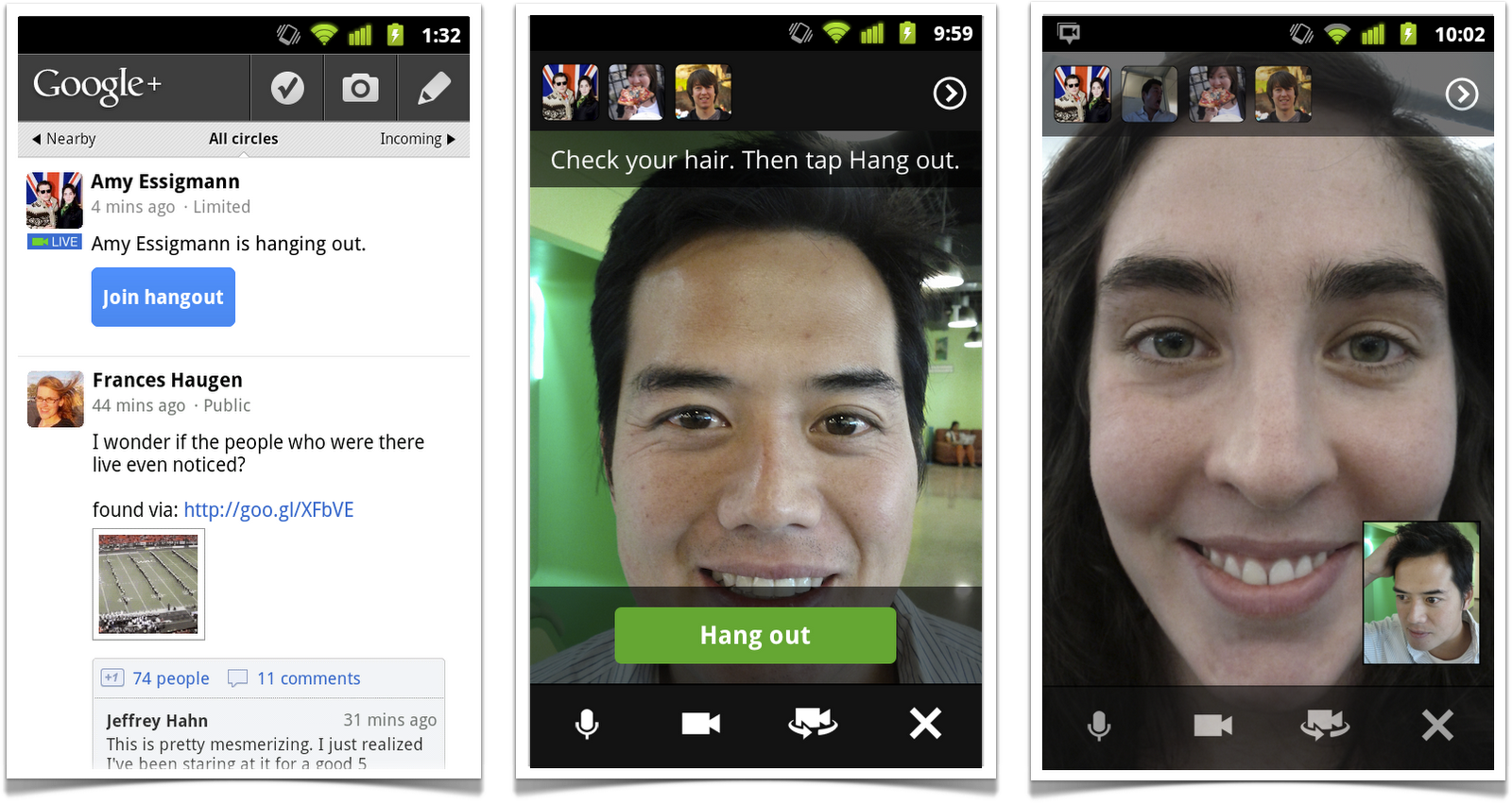As Google+ opens to everyone, Hangouts get boost to challenge more than Facebook

It's "put up or shut up" time for Google+ now that the social network - which is widely viewed as the biggest threat to Facebook's dominance - has unlocked the front door for everyone. And from what the company has done in its first few hours of making G+ a publicly available service suggests that Google is bringing its A-game - and not just going after Facebook.
The service started strong and took off fast as tech bloggers and geeks galore started singing its praises - myself included. Since then, I've only grown fonder of it - and Facebook has been scrambling to keep up and stay relevant. For example, the concept of circles - creating them, filtering by them and easily posting to them - was so great that Facebook followed suit by revamping its "Lists" feature.
But Hangouts - video chats between 10 users on Google+ - is where we get a sense of how much A-game Google has. In its post announcing the public rollout of Google, the company highlighted some pretty cool new features for Hangouts:
- Mobile Hangouts for Android (and coming soon to iOS) doesn't just go after the Facebook model here. This is a one-up on Apple's Facetime - which offers one-on-one mobile video conversations.
- Hangouts On-Air gives users the ability to create instant webcasts over Google+, opening the viewership of a hangout session to an even larger audience. When I read about it, the first thing that popped into my head was YouTube with a live stream.
- Hangouts with Extras allows users to share documents, share a scratchpad and share their screens with other users. Document collaboration goes to the heart of what companies like Salesforce and Microsoft are trying to offer to business users while screensharing has potential to be a breakthrough feature for tutorials or IT support.

Whether or not it takes off and can live in harmony with Facebook, Twitter and Even Apple's Facetime - or whether it will become a bigger disruption to any of their models - has yet to be seen. But if Google keeps innovating and welcoming more tools and features from the app developers, it could change the way people work, play and communicate in the future.
Related coverage:
- Google+ Hangouts go mobile, get live streaming and better search
- Google+ loses exclusive feel as network opens to public
- Google+ is now open for everyone to try
- A Facebook warning call: NYT says Google+ gets privacy right
- Early observations: With Google+, the social world could be gearing up for a showdown